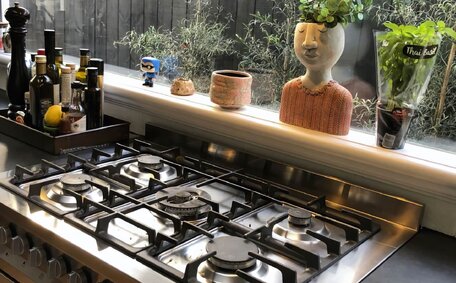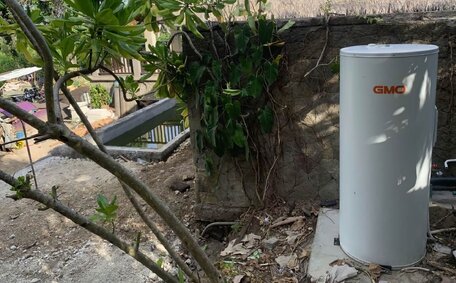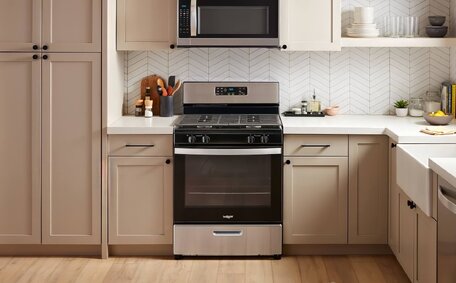
Financial Benefits of Natural Gas
Natural gas offers many financial perks over other energy sources. It burns cleaner and costs less than alternatives, helping lower monthly bills.
Read MoreSharing plumbing with multiple units can lead to more frequent blockages in apartment buildings. Some common culprits include:
When multiple units contribute to a shared plumbing system, complications from a compromised municipal water source can escalate quickly, resulting in frequent plumbing issues. For effective prevention of apartment plumbing issues, engaging professional advice on practical measures such as sink strainers and proper grease disposal is essential. Regular professional maintenance is vital to ensure efficient water flow in the plumbing stacks, mitigating recurring problems such as foul odours.
In apartments with storage tanks, addressing blockages demands an understanding of plumbing considerations and determining responsibility—typically, residents work to prevent clogs while the owners’ corporation clears shared main lines. Effective resolution involves collaborative effort among all residents.
Kitchen sinks are a major source of drain blockages in apartment buildings. Grease and food scraps from cooking can quickly build up along shared drain lines. Even a trickle of oil or fat going down the drain can cause blockage by coating pipe walls, thereby reducing their capacity to efficiently move water and clog up with other debris.
To mitigate grease-related blockages:
While residents should take precautionary measures, communal systems will inevitably accumulate some buildup, necessitating professional intervention. We suggest enlisting professional drain cleaning semiannually to ensure unobstructed flow, utilising methods such as jetting to rapidly dissolve grease buildup.
Accumulation of hair and soap scum are more common plumbing issues in bathroom drains behind clogged pipes in apartment buildings. Showers and sinks easily become clogged as loose strands of hair collect with soap residue along drain walls in your pipes. Debris over time traps other particles and thickens, which can end up causing blockages and restricting water flow.
It’s important to ensure these fittings trap hair and other debris before they enter the drainage system, and tenants must regularly clean these screens. Performing monthly cleanings is an ideal practice to maintain unblocked drains.
To combat hair clogs, use basin strainers and drain catchers, which are effective in the shower. Regular cleaning of these devices is essential to keep drains clear; however, biannual professional cleanings are also necessary to tackle any buildup that does occur.
Damaged fixtures and the potential for frozen pipes pose significant risks, often resulting in drainage issues. Degraded municipal pipes permit debris to accumulate internally, while cracks in domestic lines can introduce soil and waste, inviting blockages.
To prevent problems, building owners and strata managers should ensure plumbing maintenance through routine checks of all fixtures and infrastructure. Qualified plumbing services are crucial to detect issues such as minor cracks, misaligned joints, and root intrusions early. For ensuring the integrity of your plumbing, upgrading old clay or iron pipes to more durable PVC in a new apartment is also recommended.
Inside your apartment, routine inspections are crucial to spot water leaks, check for cracks, and corrosion near sinks, showers, taps, and fixtures to prevent serious plumbing issues. Residents should promptly report any detected faults to the building management to forestall further damage. Left unaddressed, small leaks can lead to water damage and more severe blockages, potentially resulting in raw sewage issues, a concern for any vigilant property owner.
Well-maintained plumbing systems, coupled with vigilant residents, can greatly reduce the risk of burst pipes and other drainage issues. That’s why professional cleaning of drainage systems can be essential biannually, even with the most diligent preventative measures.
In apartments, responsibilities for maintaining plumbing and clearing blockages are often divided between tenants and landlords, with the owner responsible for a blocked drain. Rental properties responsibilities vary depending on agreements, but some general guidelines apply:
Tenants are usually responsible for:
Landlords are typically responsible for:
Unless tenant negligence can be proven, landlords usually bear the costs for clearing main drain lines, potentially avoiding costly repairs. Understanding your rights, Residents who live in the complex would be very happy to familiarise themselves with rental agreements to comprehend how repairs are allocated.
Regardless of tenancy split, it helps to see all reviews and write responses as coordination between all parties is crucial for tackling apartment plumbing issues. Preventative maintenance and prompt communication play much more than a minor role; they prevent minor clogs from escalating into major blockages that necessitate costly hydro jetting repairs.
There are several steps residents and building owners can take to help prevent blocked drains in apartment buildings:
Securing a plumber who can regularly service shared systems is pivotal, as while blockages can’t always be avoided entirely, proactive maintenance and responsible waste disposal habits significantly reduce problems. Community awareness initiatives that educate residents on preventing drain blockages may be advantageous.
Nevertheless, even diligent households may encounter drain issues that can pose health hazards. Having an emergency plumber on call to promptly clear any clogs is crucial for minimising disruption and health risks.
There are several steps residents and building owners can take to help prevent blocked drains in apartment buildings:
Professional drain cleaning services can help prevent recurring blockages and maintain overall plumbing health in apartment buildings. Technicians have specialised equipment and expertise to clear all types of clogs and identify underlying issues.
Hydrojetting uses a high-pressure water stream, allowing plumbers to eradicate blockages and slice through resilient buildup effectively. It’s a comprehensive cleaning tactic for extensive drain networks and can address a variety of obstructions, from debris to deep-rooted tree incursions.
Using a drain snake or auger involves sending a long, rotating cable down the drain to manually break up and extract clogs. It’s ideal for clearing sink, shower and laundry drains. Regular snaking removes buildup and is a critical preemptive measure before the need for intensive hydrojetting arises.
Many plumbers use CCTV cameras to visually inspect drain interiors and identify exact locations of blockages or pipe damage. This enables precision targeting during cleaning and aids in diagnosing underlying issues.
Experts recommend drain cleaning every 3-6 months in apartment blocks as a preventative measure against severe clogs that might need excavation. Even with diligent waste disposal habits, some debris accumulation is expected in shared systems from everyday usage that can fall into drain.
Regular collaboration with a trusted plumbing service enables proactive problem-solving and safeguards the integrity of the building’s plumbing infrastructure.
Proper drain care is crucial for maintaining the long-term health and functionality of an apartment building’s plumbing system. When drains are regularly cleaned and maintained, it helps prevent the escalation of minor clogs into major blockages requiring expensive repairs.
Maintenance repairs and services, including drain inspections and hydrojetting every 3-6 months, enable the proactive removal of accumulating debris, grease, hair, and soap scum. This regular maintenance helps reduce corrosion and extend the lifespan of drain pipes. Catching and clearing clogs early protects apartment infrastructure from deterioration.
A benefit of routine drain cleaning is what it can do, such as identifying underlying issues before they morph into severe plumbing problems. CCTV drain inspections by qualified technicians can detect pipe damage or misalignments early. This allows for targeted repairs to be made promptly, avoiding the need for complete pipe replacement down the road.
Regular drain maintenance benefits apartment owners and tenants by ensuring a dependable drainage system, less prone to backups, leaks, or burst pipes. This reliability means consistent water pressure, access to hot water, and hygienic sanitation without the disruptions of emergency shutdowns for repairs.
Proactive plumbing care is a sound investment, leading to fewer complaints, reduced maintenance costs, and longer lifespan of the property’s plumbing infrastructure. Collaborating with professional plumbers for ongoing maintenance ensures high-quality plumbing for residents and maintains the building’s value.
Proper drain care is crucial for maintaining the long-term health and functionality of an apartment building’s plumbing system. When drains are regularly cleaned and maintained, it helps prevent the escalation of minor clogs into major block
Natural gas offers many financial perks over other energy sources. It burns cleaner and costs less than alternatives, helping lower monthly bills.
Read MoreChoosing the correct hot water system size involves considering factors like number of household members, number of bathrooms, peak usage times and daily hot water needs per person. Our guide helps determine the right system capacity.
Read MoreHaving trouble with your gas water heater not heating properly? The pilot light may have gone out. Follow our clear guide on relighting your gas water heater’s pilot light in 6 easy steps. Or call the friendly experts at Balmain Plumbing if you need assistance relighting your pilot.
Read MoreBalmain, 2041 NSW
We will call back as soon as possible.




